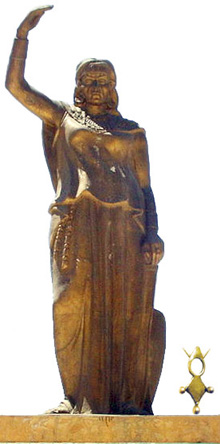In my thesis research I found that there's not a good summary of the 9 central requests anywhere (that I could easily find). So I went through the lengthy and verbose "
Berber Manifesto" and summarized its 9 main requests here.
Summary of 9 requests of the 2000 Amazigh/Berber Manifesto
First Request
The Amazigh nature of every Moroccan must be openly and
freely debated at the national level.
The “alternance” government is ideally positioned to moderate with the
Prime Minister as the leader.
The Second Request
A constitutional
recognition of Tamazight as an official and national language.
The Third Request
Government-sponsored economic affirmative action policies to
be implemented on a temporary basis—focused on infrastructure, agriculture,
industry, education and training—to bring them on par with the rest of the
nation.
The Fourth Request
Enforce the teaching
of Tamazigh at all levels of the education system. Government support for the
scientific study of the language to enable competent teaching of it.
The Fifth Request
Creation of a “national scientific commission” to develop a
Moroccan (and maghrebian) history syllabus that includes and recognizes (not
denigrates) the role of the Imazighen.
This commission shall operate apart from and independently from the
ministers of education.
The Sixth Request
Institutionalize Tamazight within the public sphere to
include: radion/tv, judicial system, public administration, health care system,
local/regional government. Train and
employ Tamazight translators and interpreters to ensure equal access and use
for all citizens. End ban (whether
official or not) on registration of Amazigh names in State Registry.
The Seventh Request
The rehabilitation of Amazigh arts (i.e., literature,
dancing, singing, architecture and ecoration) and equality of access and
funding within the government (to a level on par with Arab peers).
The Eighth Request
Recognition of historical and given Amazigh names for
locations (i.e., villages, cities and regions) in the nation instead of their
replacement with Arabic ones due to arbitrary Arabization. Rightful prioritization of Amazigh notables
when naming public institutions (e.g., El-Khattabi is last on the list for
avenue names).
The Ninth Request
Qualification of Amazigh cultural associations for official
state financial assistance. Equal
financial assistance for publications promoting Amazigh heritage of Morocco as
is received by ones in Arabic and French.








